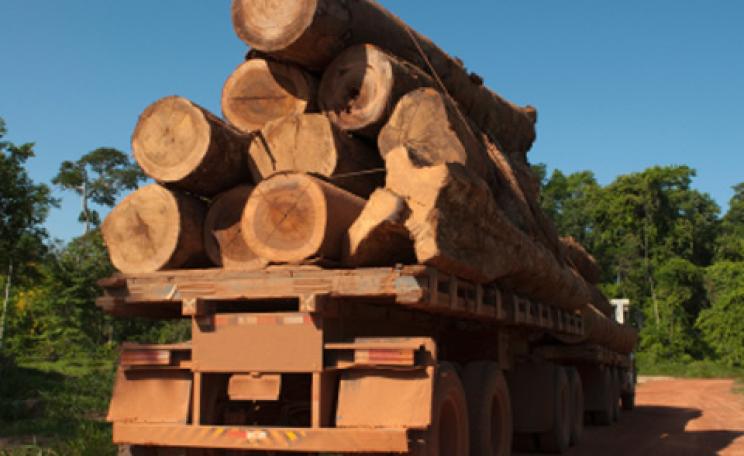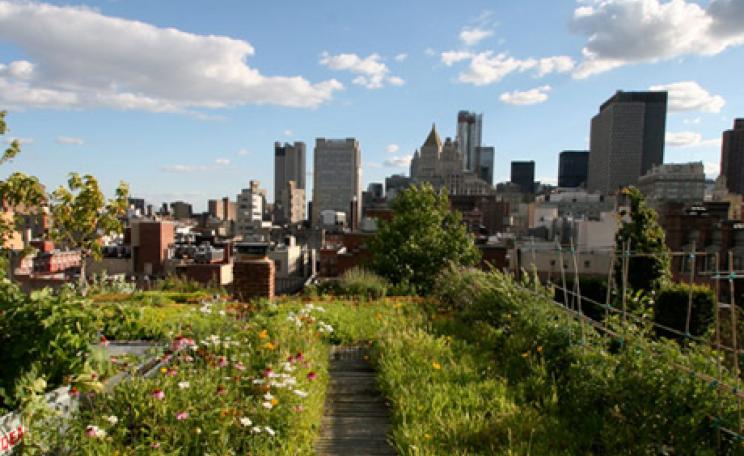Illegal logging worldwide is estimated to have beenr educed by almost a quarter over the past decade
Activists have disputed the conclusions of a new analysis suggesting that quantities of illegally logged timber have dropped by between 50 and 75 per cent in Brazil, Cameroon and Indonesia.
A report by Chatham House analysed five timber producing countries and while no improvements could be shown in Ghana or Malaysia, significant decreases in illegal timber exports were estimated in three other countries, in which a combination of government action and NGO campaigning had resulted in more efforts to tackle the problem.
However, even with these declines, illegal harvesting was still estimated to make up 35–72 per cent of logging in the Brazilian Amazon, 22–35 per cent in Cameroon, 59–65 per cent in Ghana, 40–61 per cent in Indonesia, and 14–25 per cent in Malaysia.
Corrupted figures
Forest campaigners suggest even these figures may underestimate the scale of the problem because of the growth in government-supported illegal practices.
'The perception is that illegal logging has decreased but the reality is it has not,' said Samuel Nguiffo, director of the Center for Environment and Development (CED) in Cameroon and former Goldman Environmental Prize winner.
'The companies involved have got clever and have been able to adapt to a different system. It's now a political issue for generating cash from licensing from which companies can then gain political protection for their illegal activities. It's very difficult to eradicate when some of those responsible for cutting it out are also benefiting,' he said.
Government policies
The Chatham House report used two methods to calculate the size of the illegal logging sector. First, it compared total consumption with licensed logging, with the difference assumed to be illegal. Secondly, it assessed the countries on a number of policies, including timber tracking, law enforcement, government policy and legislation.
Brazil scored well in this assessment but enforcement of new regulations there remains poor. For example, the total value of fines increased eight-fold between 2003 and 2007 but only 2.5 per cent of them have been successfully collected.
The report says reductions in illegal logging in Cameroon and Indonesia over the last decade have occurred despite poor policies in both countries and acknowledgements that there is a growing problem of companies abusing their licences and going unpunished.
It concluded that addressing corruption and lack of enforcement would require a 'profound overhaul of government policy and regulation'.
Nguiffo said a stronger legal framework to allow local communities to challenge illegal logging would make a bigger impact on government corruption.
The importers
As well as producing countries, the report also analysed progress being made in those processing and consuming illegally logged timber.
While it noted progress in the US and Europe in bringing in tougher legislation, it said China and Vietnam, which export much of the processed products like plywood and furniture entering Europe, did not yet have any legislation to prevent the import of illegally sourced timber.
| READ MORE... | |
 |
NEWS EU's ban on billion-pound illegally logged timber trade only the 'first step' New regulations will apply to forest owners and companies importing timber but not to the rest of the supply chain and leaves sanctions down to individual countries |
 |
SPECIAL CONTENT On the frontline: Forest Activists Reporting from the front-line of environmental activism, Andrew Wasley takes a closer look at those combating illegal logging |
 |
INVESTIGATION Can we trust the FSC? It's the logo we all look for when buying furniture and wood products. But the Forest Stewardship Council has come in for some serious criticism. Matilda Lee looks at both sides of the argument |
 |
NEWS Activists hail 'historic' Canadian forest agreement Logging companies agree to deal safeguarding an area of endangered boreal forest twice the size of Germany |
 |
NEWS ANALYSIS Biomass Britain: do fields of energy crops spell an end to grazing livestock? A new vision to replace our grazing land with energy crops will help reduce greenhouse gas emissions, but many are unwilling to embrace its suggestions for our future diet and countryside |








